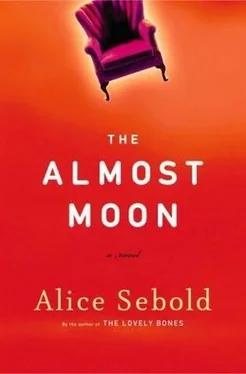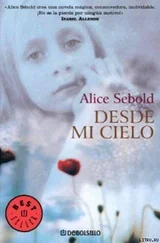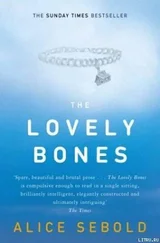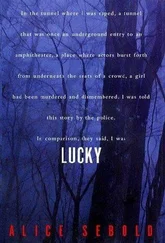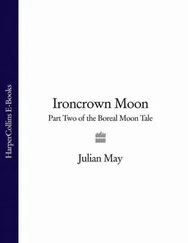“Be kind,” Mr. Forrest said, his voice coming forth in a higher register than usual. His collar was unbuttoned, but he still wore his necktie from work. I realized later that he must have run into the men while taking Tosh for a walk around the block.
The men grumbled. Most still wore what passed for work clothes-worn slacks and jackets, an occasional Windbreaker with the steel company’s logo.
“Helen,” Mr. Warner said, “we are here to talk to your mother.”
Mr. Warner, whom my mother had nicknamed the “Blusterer,” considered himself a spokesman for every occasion. He could hold court on any subject. He had once stood in our front yard, lecturing my father-who knew more about water treatment than anyone within miles-on the benefits of sewage silica plants in Liberia. “He’s read an article,” my father said when he finally peeled himself away as darkness came. “It’s nice that the man’s excited, but even I don’t want to talk about sewage that much.”
I stood on our side of the chain-link fence.
“Come talk to us, Helen,” said a father I didn’t recognize.
Why didn’t I see the warning in Mr. Forrest’s eyes before I lifted the friendship latch and walked out into the side yard? I must have been looking at the men near the hedge and not at him. Only after I turned and shut the gate behind me did I see his face. I could read fear like tarot cards.
“Where’s your mother, Helen?” Mr. Warner asked.
“Helen,” Mr. Forrest said, “you should go back inside.”
I knew enough, or at least I thought I did, to advance from against the gate and move closer to Mr. Forrest. But as I did, he backed away.
“My mother is unavailable. What can I do for you?” I asked, using the most grown-up voice I had. I was anxious now. I stepped toward Mr. Forrest once more.
“I wish I could help, Helen,” he said, his voice hollow. He knew what to fear, and I didn’t. I was beginning to hover there, in the vicinity of the truth, but with my bare feet in the grass and my quilt for a cape, I could not yet imagine men like my father, who lived all around us, wanting to hurt me. The Murdochs had moved. It had been eight months since Billy’s death. The end of my junior year was only a month away. But what I hid behind the most, the thing that made me blindest up until the minute it happened, was that I was a girl. In the world where I was raised, unlike the one in which I made sure to raise my daughters, girls did not get hit.
Mr. Warner advanced toward me and stopped.
“We have business with your mother, Helen, not you.”
This, I now saw, had been simmering ever since the inquest. My mother was never officially held accountable in Billy’s death because, according to the report of the medical examiner, his injuries that day had been traumatic enough that he would have died regardless of whether she had stepped into the road. It was the missing hit-and-run driver’s fault, not hers. Perhaps she might have held him, as other women would, or rushed to call his family, or an ambulance, but none of these actions, the authorities concluded, would have saved Billy Murdoch’s life. Officially, she was merely an innocent bystander.
When I looked behind me, Mr. Forrest was holding Tosh in his arms.
“Mr. Forrest?” I was balancing on the edge of something thin and perilous, and he was the only thing I had to trust.
“You can come with me, Helen. Why not do that?”
One or two of the men laughed when they heard this, and then we all watched Mr. Forrest walk quickly to the three flagstones set into the side of the yard that led to the sidewalk.
“Tony tends toward the hysterical,” Mr. Warner said. “No one is going to hurt you.”
But I was not relieved by this. If Mr. Warner was my only protector against the cluster of fathers and strangers, then I was in what kids at school called “deep shit.” Mr. Warner knew the cuts and quarter cuts on every major meat. He could name them and tell you their qualities. Tender, stringy, chewy, or moist. Perhaps Mr. Warner would not be the one to do the actual quartering, but I could easily picture him pontificating over my corpse.
“Where’s the bitch?” Mr. Tolliver said. His face was bright red-swollen with pride.
“Where’s the crazy bitch?” said the father I didn’t know. Their particular macho one-upmanship involved adjectives.
Phoenixville Steel, I knew, had fired Mr. Tolliver that winter. Men all over the area were losing their jobs. My father, whose own job was secure, took the news hard each time he heard it.
“ ‘Let go,’ ” he would say, and shake his head. “I hate that phrase, as if the man’s an animal and he’s being released into the wild.”
Mr. Warner shot the men a sharp look.
I would find out soon enough that my mother, too afraid to watch, had locked herself in the downstairs bathroom and turned on the transistor radio.
“I don’t know what to do, Mr. Warner,” I said. He had sons. They were one, two, and three years older than I was and barely spoke to me except to grunt hello in the presence of adults.
“It really would be best if you went and asked your mother to come out. I don’t want you to get hurt. You haven’t done anything.”
He said this with the compassionate care that a physician delivering a temporary reprieve might. But the news I heard was still bad. My mother, if not me, would be hurt.
“I can’t do that, Mr. Warner,” I said. “Why are you here?”
I knew why, of course, but I wanted to hear them say it.
“Bitch,” Mr. Tolliver said.
I saw the line of distress cross Mr. Warner’s face. This was not, at least, what he had intended. It was also not what two or three others had wanted. I could see them splitting up behind Mr. Warner. There was Mr. Tolliver and the man I didn’t know, both of them wearing Phoenixville Steel softball jackets. And there were the others, like Mr. Forrest before them, who were beginning to edge closer to the corner of the yard, tripping into the front vegetable garden in which, since my earliest childhood, my father had planted and tended and snipped herbs for my mother.
It was this that finally pushed me to make a move. When Mr. Serrano, who was an accountant and had a young daughter, crushed my father’s Italian parsley, I dropped the quilt from my shoulders and stepped forward.
“You’ll kill it.”
It was that word.
Mr. Tolliver’s friend was suddenly to my right, but I was watching Mr. Serrano step carefully back from the border of the herb garden. Just as I exhaled, I felt the sting of a slap across my face.
I fell onto the grass, my own hand going up to my cheek. Mr. Warner was jumping past me to restrain the unknown father, whom Mr. Tolliver was patting on the back. I saw Mr. Serrano look down at me as he fled the yard. It was not my first awareness of the pity people had for me, pity like a vast sea that was impossible for me to cross.
The good men left with sincere apologies thrown over their shoulders, but not to me. They apologized to Mr. Warner. I was on the ground. I was a teenager. I didn’t matter. Mr. Warner said, “No problem.” He said, “Talk later.” He said, “Take care.”
He had stopped the man who’d slapped me from doing more, and so I supposed I should have been thanking Mr. Warner, but I wasn’t. I was edging toward the quilt, which I’d dropped a few feet behind me. It seemed the only thing in the yard to offer protection.
Mr. Tolliver and his friend had appeared ready to storm the house and find my mother, but they were no match for the law Mr. Warner laid down, and, I imagine, a female teenager in cutoffs and T-shirt lying on the ground was probably scary to them. The sight of me begged a question neither had intended to pose. Mr. Warner told them to go sober up and get some food. “Go home to your wives,” he said.
Читать дальше
